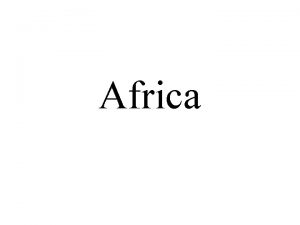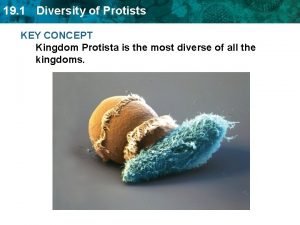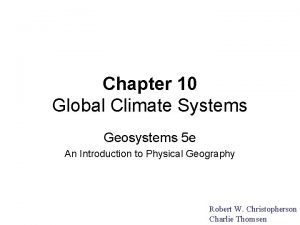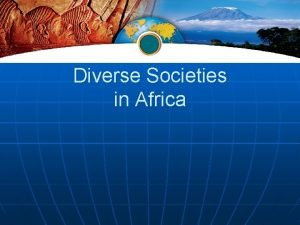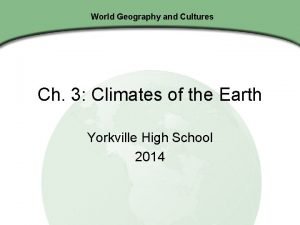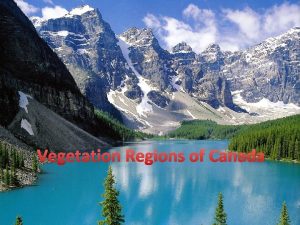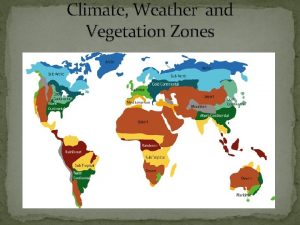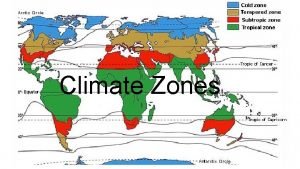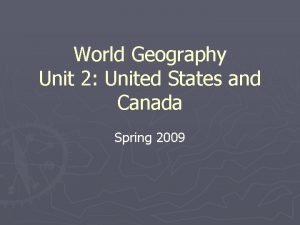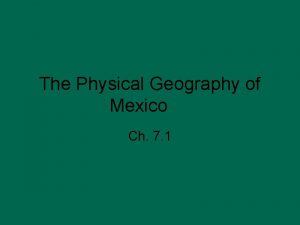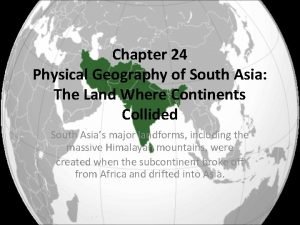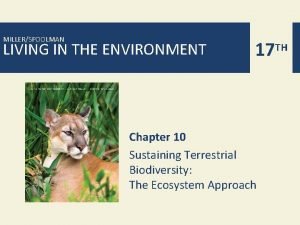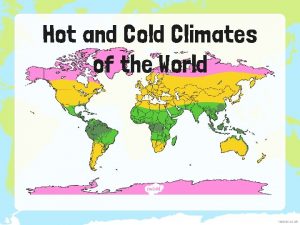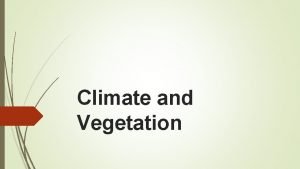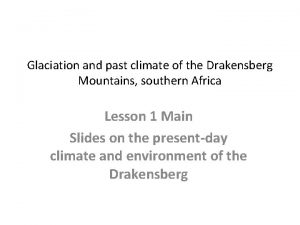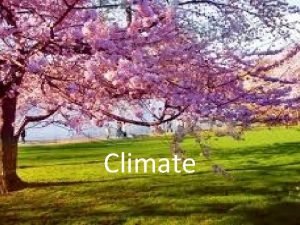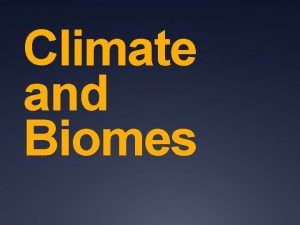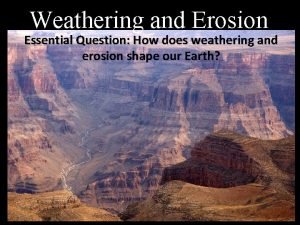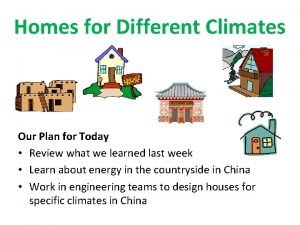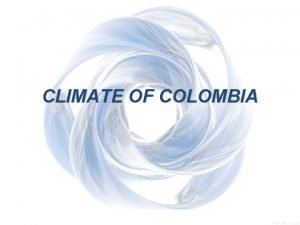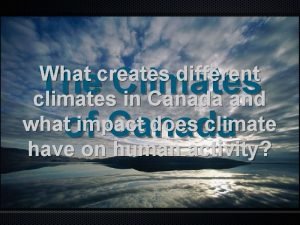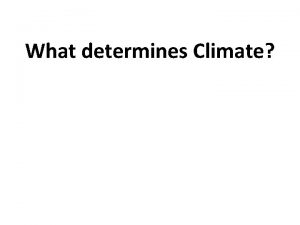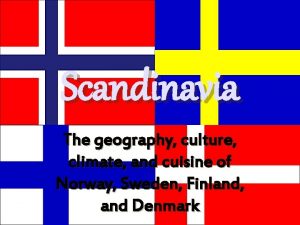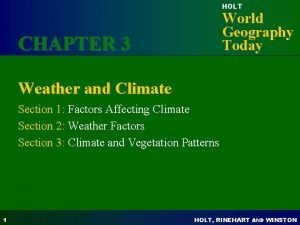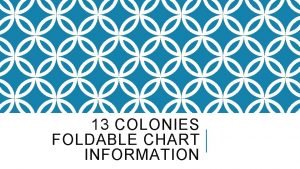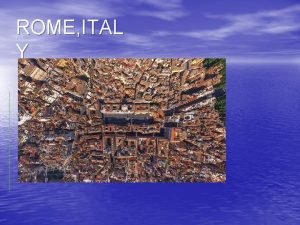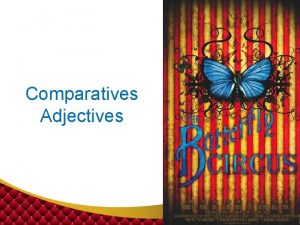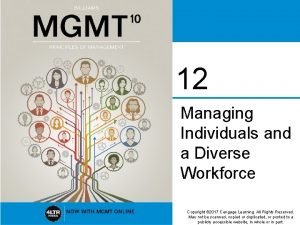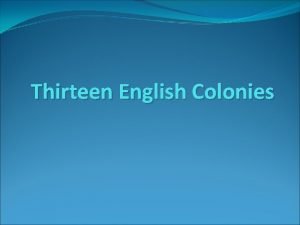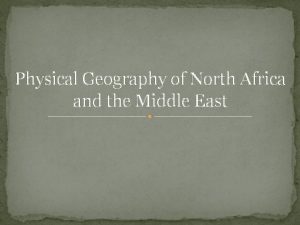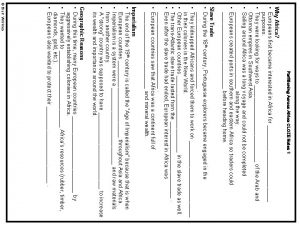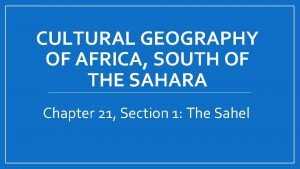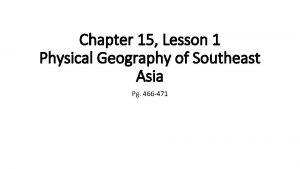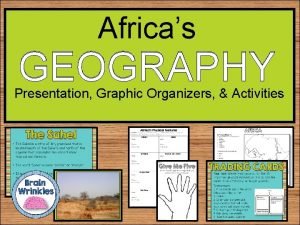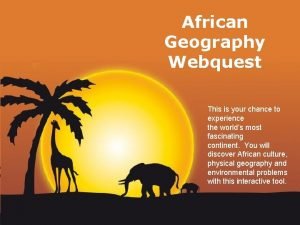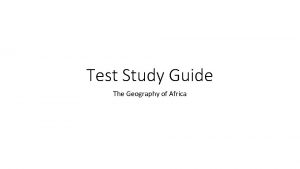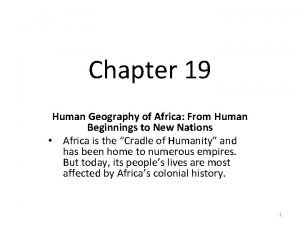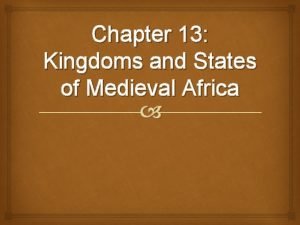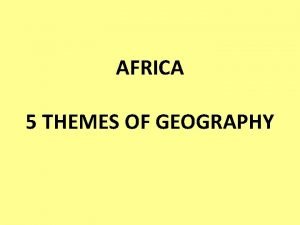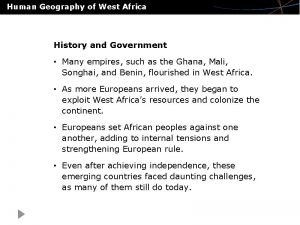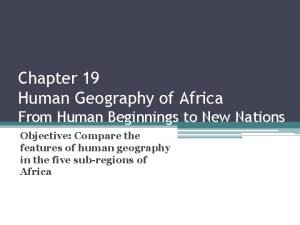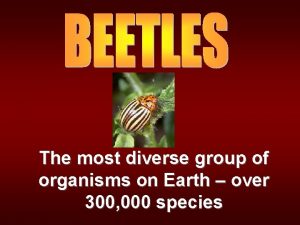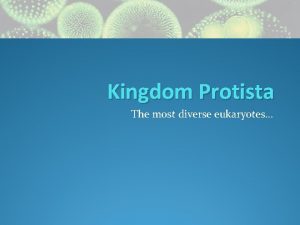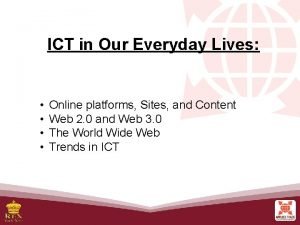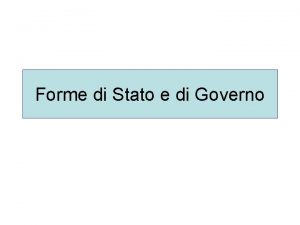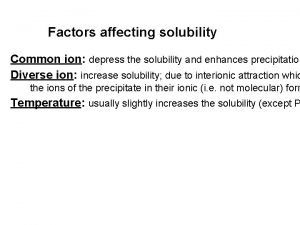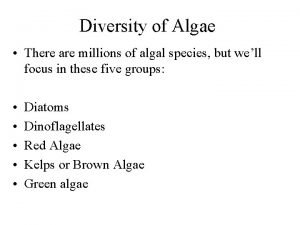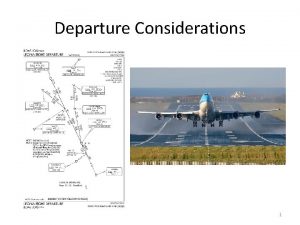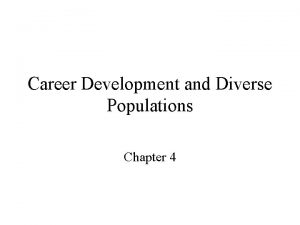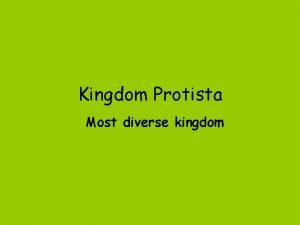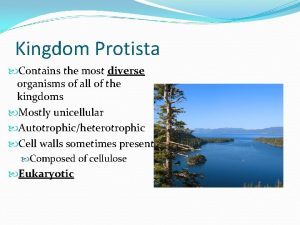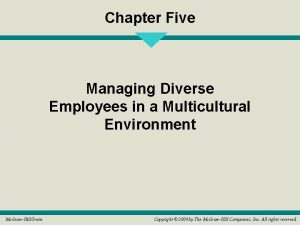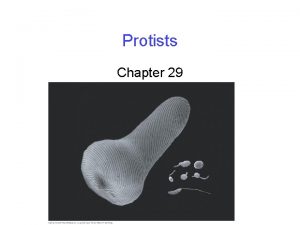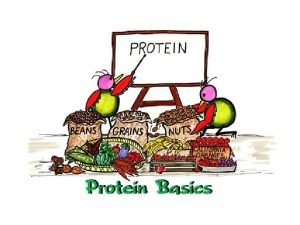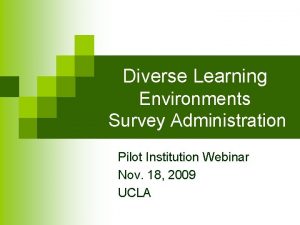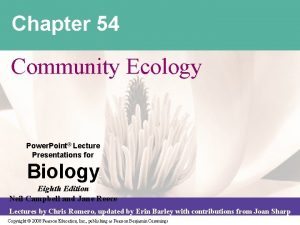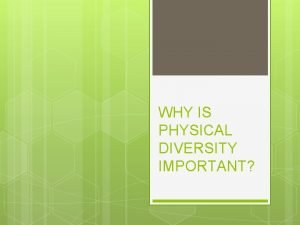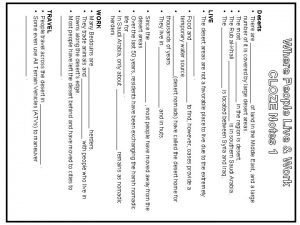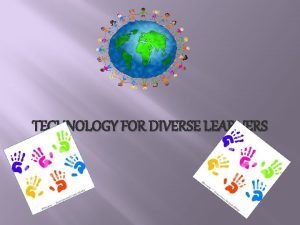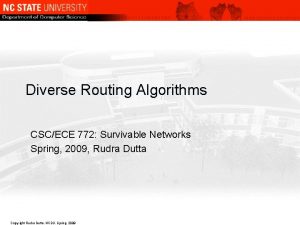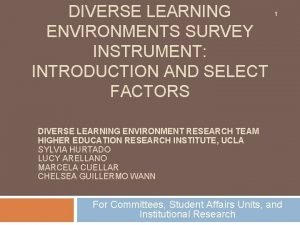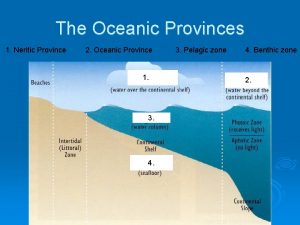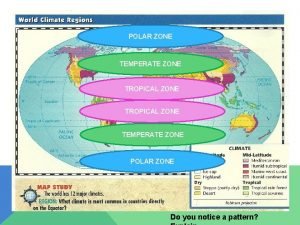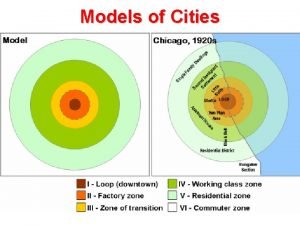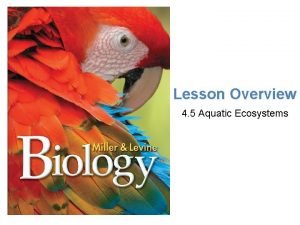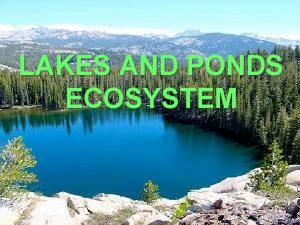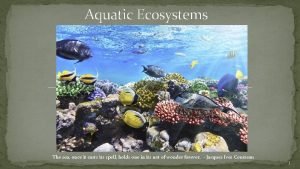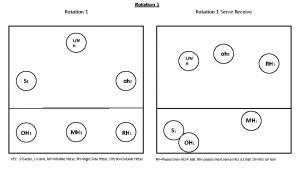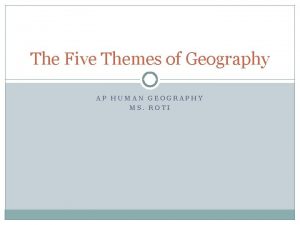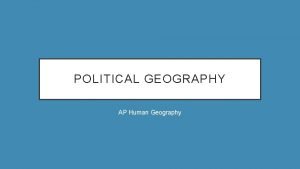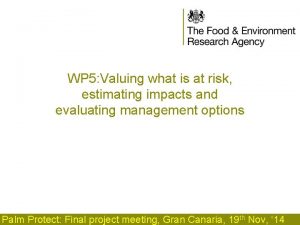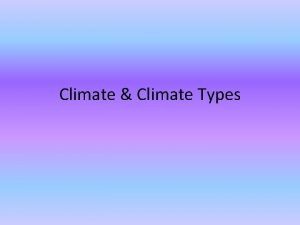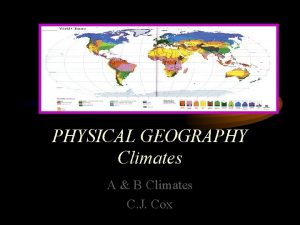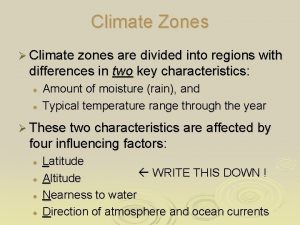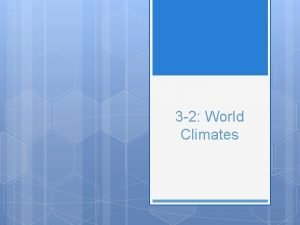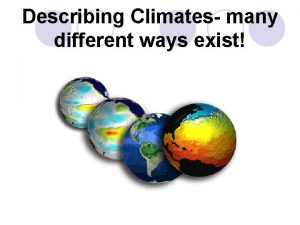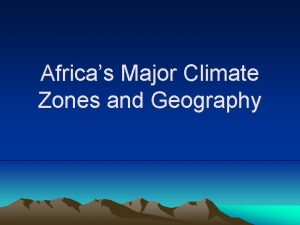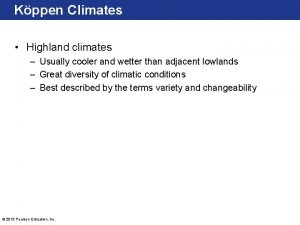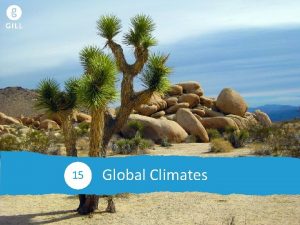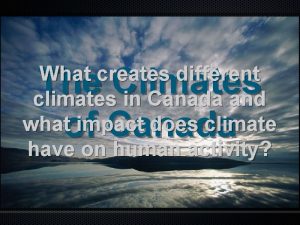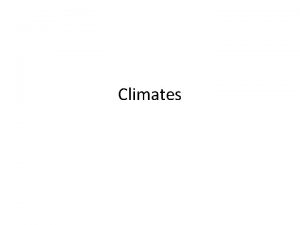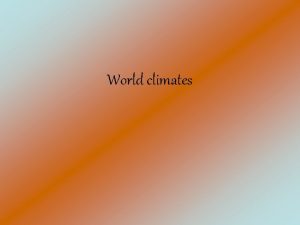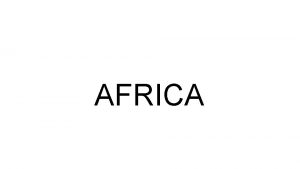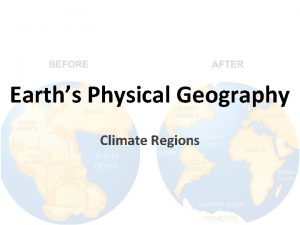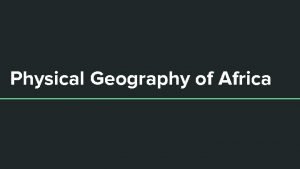Africa Geography Climate Zones Diverse geography and climates






































































































- Slides: 102

Africa

Geography • Climate Zones • Diverse geography and climates all over the continent • Which have impacted its development


Geography • Savanna- grassy plains make up largest part – Usually good soil – but weather may cause droughts • Tsetse flies infect many people and cattle – sleeping sickness • Steppe- dry zones. – 2 major deserts- Sahara in north – Kalahari and Namib in south • Mediterranean coast and Southern tip- best farming along with Nile river valley


• Forests/Jungles make up only 15% of land • Deserts and mountain regions have kept people from moving around • Few good harbors to promote shipping • Plateau in the interior • Rivers-Zambezi, Congo, and Niger used inland • Red Sea and Indian Ocean linked East Africa to Middle East and Asia • Mediterranean linked North Africa to Europe


• Many people did migrate though • Great Rift Valley of East Africa helped travel

Escarpment

• • Resources Salt Iron, Gold Copper Diamonds Oilrecently • Uranium

• It is thought that earliest humans are from Africa

Early Civilizations • 5500 BC people start to farm and domesticate around the Nile Valleyeventually became Egypt • 2500 BC Sahara dries out and climate changes

• Bantu • West Africans migrated between 500 -1500 AD and spread skills. • Common language known as Bantu • Bantu speaking people migrated all over

• Kush- Ancient kingdom developed on a stretch of fertile land along upper Nile • Also known as Nubia located in Present Sudan


350 AD Kush defeated by the Axum form Red Sea Axum stretched from Ethiopia to Red Sea Descended from people who migrated from Arabia Hebrew tradition brought with them Trade- from 200 BC to 400 AD Axum had a triangular trade network. Africa, India, Med. Traded- ivory, hides, rhino horn, gold

• North Africa • Carthage- Founded by Phoenician traders, dominated western Med. from 800 BC to 146 BC • Stretched from Tunisia, Algeria, Morocco to southern Spain and Sicily as well as England, France, W. Africa • As Rome grew the 2 clashed- Punic Wars


Ghana • By 800 AD kingdom of Ghana formed by Soninke people united • Gold-Salt trade controlled by Ghanaian kings • Trade capital of W. Africa • Ghana became known as the land of gold

Mali • Mandingo people of upper Niger river area developed in the empire of Mali • Mali expanded over gold mining areas in south and salt areas • Caravan routes crossed at towns like Timbuktu • Mansa Musa- greatest emperor of Mali. – Gained power around 1312 – Expanded borders to Atlantic Ocean – Conquered many Berber cities in the north

Pilgrimage • In 1324 When Mansa Musa made his pilgrimage to Mecca • He traveled like a king. 500 slaves, lots of gold. • When he stopped in Egypt along the way, Musa supposedly handed out gold in the street • Forged trading and political ties with areas he visits • Brought scholars and artists back with him • Word of Mali’s wealth spread • Europeans wanted the gold in Mali

Songhai • Between 1464 and 1492 - Sunni Ali- led the Songhai to become the largest state ever in W. Africa • After Sunni Ali dies, emperor Askia Muhammad set up a Muslim kingdom • 1591 the Songhai were defeated by Moroccan armies as a result of being weakened by Civil War


• East Africa City States • Many cities in East Africa grew in power • Different people from different areas began to mingle and mix • New culture began to develop with a new language. Swahili was a mix of Arabic and Bantu • Zimbabwe- great inland empire between 900 and 1500 AD that existed but little is known about it • around 1500 Portuguese sailors came in and destroyed many areas

• Family Life • Basic unit of society- family • Nuclear Family typical- parents, children live and work as a unit • Matrilineal- inheritance and descent traced to mother’s side of family. Husband joins wife’s family • Strong ties between brothers and sisters. Brothers to protect sister while sister made sons available for brothers • Families belonged to a lineage and several lineages belong to clans

• • Religion. Varied and complex. Polytheistic. Called on certain spirits for help Many believed that one Supreme being stood above all others. • Spirits of ancestors were present on earth • Christianity and Islam influenced Africa eventually. • Believed Christian/Muslim god was the supreme being of tradition

Age of Imperialism 1800 -1914

Imperialism • Definition- Domination by one country of the political, economic, or cultural life of another country or region.

Imperialism • 1492 - Age of Discovery begins • Europeans conquer Americas • Establish colonies in Southeast Asia and some holds on Africa and China. • Between 1500 -1800 Europe has little influence over people in China, India, and Africa • By 1800 - this changes- Politics and economics

Reasons for Imperialism • • • Economics Politics and Military Humanitarian and religion Social Darwinism One upsmanship

• Economics- Industrial Revolution causes need for raw materials such as: – Rubber – Petroleum – manganese for steel – palm oil for machines. – Copper, gold from Africa – Cotton and Jute from India, – Tin from Southeast Asia • Spur growth of Financial markets – Fruits, teas, coffee, cocoa • New Markets for goods to be sold

Economics • Expanding population needed places to live and gain fortunes • Cecil Rhodes- adventurer who made a fortune from gold and diamonds • Founded a colony known as Rhodesia(modern day Zimbabwe)

• Politics and Military • Bases need for Merchant ships • Bases could serve military purposes – stronger larger navy could protect merchant ships • Could use conquered people in armies- manpower • Raw materials to increase military

Politics and Military • Nationalism – Superiority of one nation compared to all others • One upsmanship – If Britain had a colony- others had to have one

• Humanitarian and religion • Many felt they needed to help “civilize” the people of “backward” regions. • Europeans were thought to be superior and tried to impose their culture on conquered people • Christian missionaries- tried to save the souls of non Christians by converting them

Social Darwinism • Darwin’s ideas of natural selection and survival of the fittest applied to societies. • Nature dictates that Europeans were superior and conquest and destruction of weaker races • Nature’s way of improving human race.

Forms of Imperialism • Colony- Territory ruled directly with officials ruling the local people • Direct rule- (French) officials directly from country to rule • Indirect rule-(British) use locals rulers as officials for governing – Encourage children of rulers to get education in Britain – Children will be accustomed to British culture

Forms of Imperialism • Protectorate- Local ruler left in place but takes advice from European advisers • Sphere of Influence- region where Imperialist power has exclusive rights to trade or investment

Imperialism in Africa • Dark Continent- unknown land • Africa is 4 times larger than Europe • Many different cultures with hundreds of languages and governments

Imperialism in Africa • North Africa – fertile land near Mediterranean – Sahara – largely Muslim – Much ruled by Ottomans

Imperialism in Africa • West Africa – Portuguese, Dutch, British, and French set up trade posts in the 1500’s. – By 1600’s- center of transatlantic slave trade. – Traded salt, gold, and iron. – Cotton and cacao beans, palm oil, ivory, and rubber. – Asanti ruled much land

• East Africa – Islamic – Trading along Red Sea and Persian Gulf – slave trade – Ivory – Copper – Ethiopia

South Africa • Before Suez canal- quickest way to Asia was around Cape of Good Hope. • Gold and Diamonds discovered in later part of 1800’s • Zulu

Explorers • • • Mungo Park Richard Burton Traveled along Rivers Nile Niger Congo

David Livingstone • missionary explorer traveled across continent for 30 years. • Disappeared for several years. • Henry Stanley found him- “ Dr. Livingstone I presume?

Congo • Stanley later is hired by King Leopold II of Belgium • Explores Congo River Basin to arrange trade • Civilizing Mission • Leopold Claims Congo for himself • Eventually, people heard of atrocities in Congo • Leopold forced to turn over his private claim to Belgian Government. Belgian Congo-1908

• Partition of Africa • Berlin Conference • New borders drawn up without thinking about people who lived there • Land divided with knowing what was there • All of Africa except for Ethiopia and Liberia under Euro control by 1900

Berlin Conference

French Imperialism • France controlled most of Northern Africa to control Mediterraneanconflict with Muslims 30 years • 1869 - Suez Canal built

British Imperialism • Britain smaller but more scattered lands, but heavily populated and more natural resources • Britain held West and East Africa along with Egypt then into Southern Africa

British Imperialism- South Africa • 1806 British gains Cape Colony from Dutch • Dutch Farmers (Boers) disliked British and moved north to create own colony. Great Trek • Late 1800’s gold & Diamonds found in Boer republics • 1899 -1902 - Boer War • British win and in 1910 Cape Colony and former Boer republics join into Union of South Africa

• • Other Euro nations join in the scramble Portuguese- Angola, Mozambique Germany- Eastern and Southwestern Africa Italy - Tripoli- renamed Libya then over to Horn of Africa toward Red Sea and try to take Ethiopia

Ethiopia • 1896 - Ethiopians defeat Italy at Battle of Adowa • Ethiopia- Christian empire in highlands of E. Africa • late 1800’s Menelik II unifies and modernizes, hires Europeans to plan roads, bridges, and schools • Imports latest weapons and Euro military experts


• Imperialism sparks Nationalism • As a result of Imperialism- western educated African elite emerges • Many middle class Africans liked western culture and rejected their own culture • Others wanted to keep African traditions and get rid of western culture- talked of liberty and equality but only for whites • By early 1900’s Africans wanted independence

Response to Colonialism • Never completely one sided • Unequal, though • Imperialism created different world – Economically – Politically – Socially • Africans tried to adapt

Pan Africanism • Original definition – Drew a link between all people with African ancestry • By 1960 s meaning changed – African countries should work together for peace and stability

Pan Africanism • • Created by members of African Diaspora Mostly from Western Hemisphere Not African in origin Leadership taken by Africans after WWII

2 streams of Pan Africanism • Africanist- emphasized uniqueness of African “race” • Non-Racialist- Equality and elimination of skin color as factor in human relations

Back To Africa • Africa for Africans • Whites would not accept blacks in white world • Blacks should go back to Africa • Marcus Garvey

OAU • • Organization of African Unity Cooperation among Africans Assisting all Africa to become independent Kwame Nkrumah

OAU • Included Muslims and Arabs in North Africa • Worked together in UN – Big voting bloc • Still a lot of conflict

Kwame Nkrumah • First president of Ghana • Ghana- Gold Coast before independence • First “black” African state to gain post-colonial independence

Post Colonial Independence • • Africans divided in their own countries Civil Wars Few Democracies Many Dictators – Corrupt – Brutal



Idi Amin • • • Uganda Took power 1971 Tortured and killed 300, 000 AKA 'Big Daddy‘ AKA 'Butcher of Africa‘ AKA 'Conqueror of the British Empire‘ • AKA 'Lord of All the Beasts of the Earth and Fishes of the Sea'


Mobutu Sese Seko • • Overthrew Patrice Lumumba President of the Democratic Republic of the Congo Zaire 1965 to 1997 Overthrown by group supported by Rwanda Stole between $4 -$15 billion Died in Exile

Mobutu Sese Seko Kuku Ngbendu waza Banga • The all-powerful warrior who, because of his endurance and inflexible will to win, will go from conquest to conquest leaving fire in his wake.


Jomo Kenyatta • • • Accused of leading Mau Uprising Imprisoned Kenya gained independence Father of Kenya Son elected president of Kenya- 2013 – Also charged with war crimes


Apartheid • System of racial segregation in S. Africa • 1948 -94 • Ruled by 5% of Population- White


Apartheid • Whites • Blacks • Coloreds

Passbooks • Non whites had to carry identification books • Whites not required



• African National Congress • Marxist group fighting for independence • Eventually Led by Nelson Mandela ANC

Nelson Mandela • • Leader of ANC Initially non violent protest Then led bombing campaign- Defiance Campaign Imprisoned Became symbol of Anti-Apartheid struggle Released 1990 by FW De. Klerk Elected 1 st black South African president -1994 – De. Klerk- PM

Nelson Mandela • • 1993 Nobel Peace prize with De. Klerk After election New Constitution Truth and Reconciliation Commission – Investigative previous human rights violations


• http: //www. cnn. com/SPECIALS/impact. yo ur. world/

http: //english. aljazeera. net/indepth/spotlight/stateofsudan/

• http: //www. pbs. org/frontlineworld/stories/s outhernafrica 904/video_index. html


• http: //www. pbs. org/frontlineworld/rough/20 05/10/south_africa_th. html

• http: //www. pbs. org/frontlineworld/stories/s outhernafrica 904/video_index. html

• http: //www. cnn. com/2010/WORLD/africa/0 8/25/nigeria. child. witches/index. html

• http: //www. viewchange. org/videos/democra tic-republic-of-congo-find-a-word-for-it

http: //cellar. org/iotd. php? threadid=24386

http: //www. viewchange. org/videos

http: //www. ted. com/talks/andrew_m wenda_takes_a_new_look_at_africa. h tml

http: //www. viewchange. org/videos/ticad-towards-a-vibrant-africa

http: //www. viewchange. org/videos/a-game-for-life

http: //www. viewchange. org/videos/on-theground-with-nicholas-d-kristof-what-are-youcarrying

http: //www. viewchange. org/videos/the-aid-traders

http: //www. viewchange. org/videos/thechance-to-save-millions-a-bold-newendeavour

http: //www. viewchange. org/ videos/democratic-republicof-congo-find-a-word-for-it


http: //online. wsj. com/article/SB 10001424 052748704803604576078532037007562. html
 Climate zones in africa
Climate zones in africa Diversity of protists
Diversity of protists Explain how köppen’s climate system classified climates.
Explain how köppen’s climate system classified climates. Equator temperature
Equator temperature How do littoral zones differ from riparian zones?
How do littoral zones differ from riparian zones? African iron age
African iron age Diverse societies in africa
Diverse societies in africa World geography chapter 3 climates of the earth
World geography chapter 3 climates of the earth Vegetation zones canada
Vegetation zones canada Climate and vegetation zones
Climate and vegetation zones 12 climate zones map
12 climate zones map Climate zones of the united states
Climate zones of the united states Mexico climate zones
Mexico climate zones Latin america climate zones
Latin america climate zones Climate zones of asia
Climate zones of asia Vegetation zones in africa
Vegetation zones in africa Climate change 2014 mitigation of climate change
Climate change 2014 mitigation of climate change Unfenced grasslands in tropical and temperate climates
Unfenced grasslands in tropical and temperate climates Hot and cold climates
Hot and cold climates Equatorial climate vegetation
Equatorial climate vegetation Wikimedia commons
Wikimedia commons Why are tropical climates so hot brainpop
Why are tropical climates so hot brainpop Climates of earth lesson 1 answer key
Climates of earth lesson 1 answer key What determines a region's climate
What determines a region's climate Weathering
Weathering Houses in different climates
Houses in different climates Types of communication climates
Types of communication climates Climates in colombia
Climates in colombia Climates of france
Climates of france Different climates in canada
Different climates in canada Summers are caused by
Summers are caused by Scandinavian climate and geography
Scandinavian climate and geography How does wind affect weather and climate
How does wind affect weather and climate New england colonies pegs
New england colonies pegs Iroquois geography and climate
Iroquois geography and climate Ancient rome climate and geography
Ancient rome climate and geography Kums definition geography
Kums definition geography Diverse comparative and superlative forms
Diverse comparative and superlative forms Working with culturally and linguistically diverse families
Working with culturally and linguistically diverse families Family matters definition
Family matters definition Surface level diversity
Surface level diversity Middle colonies climate/geography
Middle colonies climate/geography Physical features of the middle east map
Physical features of the middle east map African geography cloze notes
African geography cloze notes Temperate region
Temperate region Cultural geography of africa
Cultural geography of africa Chapter 15 lesson 1 physical geography of north africa
Chapter 15 lesson 1 physical geography of north africa Physical features of kenya
Physical features of kenya Africa geography webquest
Africa geography webquest Africa geography unit test study guide
Africa geography unit test study guide The mutapa empire thrived on the trade of diamonds.
The mutapa empire thrived on the trade of diamonds. Medieval africa geography
Medieval africa geography 5 themes of geography africa
5 themes of geography africa Medieval africa geography
Medieval africa geography Human geography of west africa
Human geography of west africa Locate the sahara and the sahel. label them on your map
Locate the sahara and the sahel. label them on your map Chapter 19 human geography of africa
Chapter 19 human geography of africa Most diverse group of organisms
Most diverse group of organisms Refractia luminii
Refractia luminii The most diverse eukaryotic kingdom is
The most diverse eukaryotic kingdom is What sites that focus on short updates from the user
What sites that focus on short updates from the user Forme di stato
Forme di stato Diverse ion effect
Diverse ion effect Algal diversity
Algal diversity Diverse departure
Diverse departure Gage definition
Gage definition Art is diverse
Art is diverse Quante altezze ha il parallelogramma
Quante altezze ha il parallelogramma We live in a diverse world
We live in a diverse world Chapter 16 section 1 russia and the western republics
Chapter 16 section 1 russia and the western republics It is a diverse group of hydrophobic molecules
It is a diverse group of hydrophobic molecules What is the most diverse kingdom
What is the most diverse kingdom Which kingdom is most diverse
Which kingdom is most diverse Introduction for ict
Introduction for ict Managing diverse employees in a multicultural environment
Managing diverse employees in a multicultural environment Stramenopila
Stramenopila Most diverse biomolecules
Most diverse biomolecules Diverse offspring
Diverse offspring Diverse learning environments survey
Diverse learning environments survey Biological disturbance
Biological disturbance Diverse expenses
Diverse expenses Define physical diversity
Define physical diversity Diverse desert sector willing
Diverse desert sector willing Technology for diverse learners
Technology for diverse learners Diverse routing
Diverse routing Diverse learning environments survey
Diverse learning environments survey Oceanic provinces and zones
Oceanic provinces and zones Which countries are in the temperate zone
Which countries are in the temperate zone The burgess model
The burgess model How do ecologists usually classify marine ecosystems?
How do ecologists usually classify marine ecosystems? 3 zones of space and awareness dementia
3 zones of space and awareness dementia Ocean and lake zones
Ocean and lake zones Lentic zone
Lentic zone Epilimnion
Epilimnion Compare ponds, lakes, and stream pools.
Compare ponds, lakes, and stream pools. Zones in lake ecosystem and types of organisms present
Zones in lake ecosystem and types of organisms present Littoral limnetic
Littoral limnetic Profundal zone
Profundal zone Volleyball zones
Volleyball zones Ap human geography political geography frq
Ap human geography political geography frq 5 themes of geography ap human geography
5 themes of geography ap human geography Proruption ap human geography
Proruption ap human geography Hardiness zones asia
Hardiness zones asia
